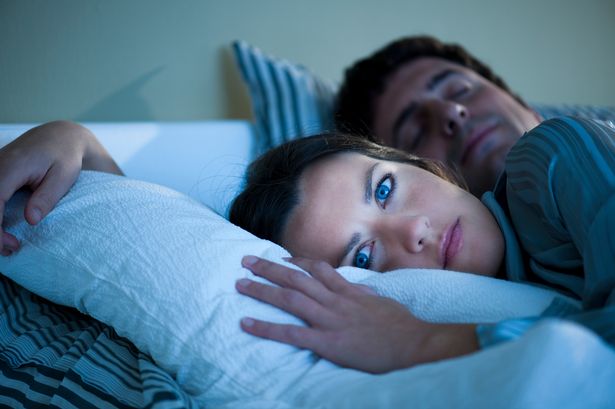You may not have heard of 'nocturia', but if you have woken up at night to go to the toilet multiple times, you’ve experienced it.
Getting up to go to the toilet during the night is often a huge cause of disrupted sleep, particularly if you wake up every few hours. Nocturia can disrupt sleep cycles, inevitably impacting productivity and concentration the next day.
According to the NHS, it is normal to pass water up to eight times a day and once or twice a night. But if you are consistently emptying your bladder more frequently than this or being woken more than twice at night you may want to seek GP advice.
READ MORE:
Increased urination can be a sign you have diabetes, which can occur at any age.
Other causes of an overactive bladder include:
- Urinary tract infection (UTI).
- Enlarged prostate in middle-aged and older men.
- Swelling and infection of the urethra.
- Vaginitis.
- Nerve related problems.
- Caffeine intake.
While going to the toilet at night is incredibly common and does increase with age, that doesn’t mean you should accept it as part of your nightly routine. To find out what's causing nocturia, Happy Beds has spoken to sleep psychologist, Dr Kathrine Hall, from Somnus Therapy. The expert also explains what you can do to reduce it's impact.
Four ways to reduce the number of times you got to the toilet at night:
1. Always sleep on your side
Dr Katherine Hall explained: “One of the best positions for those with OSA and nocturia is to sleep on your side with your back straight. This will help open the airways and lead to more regular breathing, and it could reduce your trips to the toilet by improving those OSA symptoms.”
2. Have a ‘lie down’ on your sofa before bed
The positions you keep your body in during the day can impact your trips to the bathroom. If you are upright most of the day and then lie flat when you go to bed, the fluid that has built up in your legs does not have the chance to drain and flow to the kidneys.
Dr Katherine said: “So, if you go straight to bed, you will likely need a trip to the bathroom due to that fluid. But, keeping your legs elevated before you go to bed allows that fluid to drain more effectively before you go to sleep, so, in theory, you would spend more time going to the bathroom during the day than at night.
3. Stop drinking water two hours before bed
If you can, avoid drinking water around two hours before bed. If you need water at night, try to take small sips and move your water out of sight, as that can encourage the need to go to the bathroom.
Instead, drink water during the day. If you struggle to balance your water intake, remember to drink with every meal and when you wake up.
4. The temperature of your bedroom could be waking you up
Most of us sleep in a bedroom which is too hot. Dr Hall says many studies have shown the temperature of your room is one of the most significant factors that can disrupt your sleep.
The wrong temperature in your room can lead to decreased REM (deep) sleep and more time spent waking up than resting. It's recommended that you sleep in a room with a temperature of around 20C. Anything hotter or colder can impact your body's internal temperature changes during sleep.
Discover, learn, grow. We are Curiously. Follow us on TikTok, Instagram, Facebook and Twitter.

